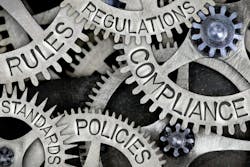FCC Chairwoman Rosenworcel sets forth a proposal to restore net neutrality
The Chairwoman shared with her colleagues a Notice of Proposed Rulemaking. If adopted by a vote of the full Commission at its monthly meeting on October 19, 2023, the agency will begin a new rulemaking to take public comment and reply to comments on the proposal. The full text of the proposal will be made public on Thursday.
It is the first move to begin re-establishing the FCC’s oversight over broadband and restoring uniform, nationwide net neutrality rules, allowing the FCC to protect internet openness and consumers, defend national security, and advance public safety.
Specifically, The Chairwoman is proposing the FCC take the first procedural steps toward reaffirming rules that would treat broadband internet service as essential for American life. As work, healthcare, education, commerce, and so much more have moved online, she said that no American household or business should need to function without reliable internet service.
Under Title II of the 1934 Communications Act, these rules would affirm that broadband is no less essential than running water, electricity and phone service.
Aiming to essentially return to the successful rules the Commission adopted in 2015, the proposed regulations would return fixed and mobile broadband service to its status as an essential “telecommunications” service. The proposal will be made public and will allow for public input.
“After ten years of policymaking and three rounds of litigation, in 2015, the FCC finally adopted net neutrality protections that the courts upheld,” Rosenworcel said during a speech at The National Press Club in Washington, DC. “The FCC had produced open internet policies that passed judicial muster. We had clear rules of the road—and those rules were popular. Eighty percent of Americans support open internet policies. This appeared to be the end of the net neutrality saga. But no. In 2017, the last administration took it up again and did something different. It announced that it would break with over a decade of consistent FCC policy and repeal the FCC’s open internet rules. The public backlash was overwhelming. People lit up our phone lines, clogged our e-mail in-boxes, and jammed our online comment system to express their disapproval.”
Reinstating Title II
At the heart of the new proposal is reinstating Title II. Title II is a critical element of net neutrality because the courts ruled that the FCC can enforce open internet policies if broadband internet is classified as a Title II service.
While the net neutrality rules were overturned in 2018, several states, including California, stepped in with their own rules. States put net neutrality rules, executive orders, and contracting policies in state law.
“In effect, we have open internet policies that providers are abiding by right now—they are just coming from Sacramento and places like it,” Rosenworcel said. “But when you are dealing with the most essential infrastructure in the digital age, we benefit from one national policy. This means we are not choosing between net neutrality and no rules. We are discussing one national standard or a patchwork of state regulations.”
Rosenworcel argued that reinstating Title II would benefit providers and consumers.
For consumers, Title II would give the FCC greater authority over the communications marketplace and bolster the agency’s authority to require ISPs to address internet outages. She cited how a small village in Detroit had no internet for over a month.
“Title II would also bolster our authority to require internet service providers to address internet outages,” Rosenworcel said. “This hit home for me when I visited Detroit last year. I heard about Hope Village, a neighborhood of about 6,700 people who suffered a 45-day internet outage during the pandemic and had little recourse. Remember, when the FCC backed away from overseeing broadband, the only mandatory outage reporting system could have focused on long-distance voice outages. Let me submit to you in a modern economy— and during the pandemic—collecting only data about when the voice system goes down does not cut it.”
“It would also provide more freedom for broadband-only providers to get affordable access to existing utility poles to install fiber cable to deliver services to consumers and businesses. “Title II gives cable and phone companies rights to attach their facilities to utility poles when they deploy service,” Rosenworcel said. “But when the FCC rolled back its open internet rules, it eliminated the pole attachment rights of broadband-only providers. If you want to build out and competition, this is not good. It needs to be fixed.”
While the Chairwoman is calling for reinstating Title II, she said that the approach is to propose what she calls a “light touch.”
“Back in 2015, when the FCC last had net neutrality rules upheld by the courts, the FCC chose to forbear from 27 provisions of Title II of the Communications Act and over 700 agency regulations for broadband and broadband providers,” Rosenworcel said. “We are sticking with that approach.”
A mixed response
Chairwoman Rosenworcel’s proposal has already drawn praise and opposition from other FCC commissioners, advocacy groups, and nonprofit organizations.
Chip Pickering, CEO of INCOMPAS, pointed to how open Internet policies have driven a new generation of the top players developing bandwidth-hungry applications, “resulting in our broadband competitors breaking the cable bundle. Consequently, there is a rush to build more broadband, and broadband competition is spreading.”
“We continue to believe Congress should establish a permanent and predictable Internet policy framework,” he said. “Until that happens, INCOMPAS supports Commission action that provides limited authority over broadband, prohibits rate regulation of broadband prices, promotes competition and technology transitions, ensures access to poles and multi-tenant environments, and puts the Universal Service Fund on a sustainable path forward.”
Likewise, the Fiber Broadband Association praised the FCC’s efforts to provide a favorable regulatory framework to deploy fiber-based broadband.
“Broadband providers have deployed, and consumers have adopted fiber connectivity at an increasingly accelerated pace over the past five years,” said Gary Bolton, president and CEO of the Fiber Broadband Association. “This is because fiber is the critical infrastructure for all 21st-century communications. But the federal government also deserves credit for providing a “right-touch” regulatory environment that encourages investment. The Fiber Broadband Association looks forward to reviewing Chairwoman Rosenworcel’s proposal closely and working with all the Commissioners to ensure the Federal Communications Commission first “do no harm.”
However, not everyone is on board.
Fellow FCC commissioner Brendan Carr called the Title II proposal an “unlawful plan” and said, "The American people want more freedom on the Internet—not greater government controls over their online lives.”
He added the FCC’s 2017 overturning of the 2015 net neutrality rules benefitted consumers and businesses as providers expanded service throughout their respective footprints. “The FCC’s 2017 decision to restore Internet freedom, broadband speeds in the U.S. are up, prices are down, competition has increased, and record-breaking broadband builds brought millions of Americans across the digital divide,” Carr said. “Utility-style regulation of the Internet was never about improving your online experience—that was just the sheep’s clothing. It was always about control.”
Watchdog groups like Citizens Against Government Waste (CAGW) also cited their opposition to reinstating Title II, calling it an effort to bring back heavy-handed net neutrality rules to regulate the Internet by rescinding the Restoring Internet Freedom Order (RIFO).
Tom Schatz, President of the CAGW, agreed that the RIFO drove service providers to make capital investments to upgrade their networks.
“After the Restoring Internet Freedom Order (RIFO) was adopted in 2018, broadband internet service providers have made significant capital investments, including a record $102.4 billion in 2022, to upgrade networks, expand deployment, reduce the digital divide, and increase the affordability of connecting every household and business that wants to be connected,” Schatz said. “Any effort to undo this progress and restore net neutrality through Title II regulations as they existed under the Open Internet Order will stifle innovation, harm consumers and taxpayers, and provide an opportunity for other countries to take over America’s position as the global leader in telecommunications.”
He added, “The proceeding will be a waste of taxpayer dollars that should be opposed by every American who wants less government control over telecommunications and more efficient, effective broadband deployment to businesses and households throughout the country.”
About the Author
Sean Buckley
Sean is responsible for establishing and executing the editorial strategy of Lightwave across its website, email newsletters, events, and other information products.

